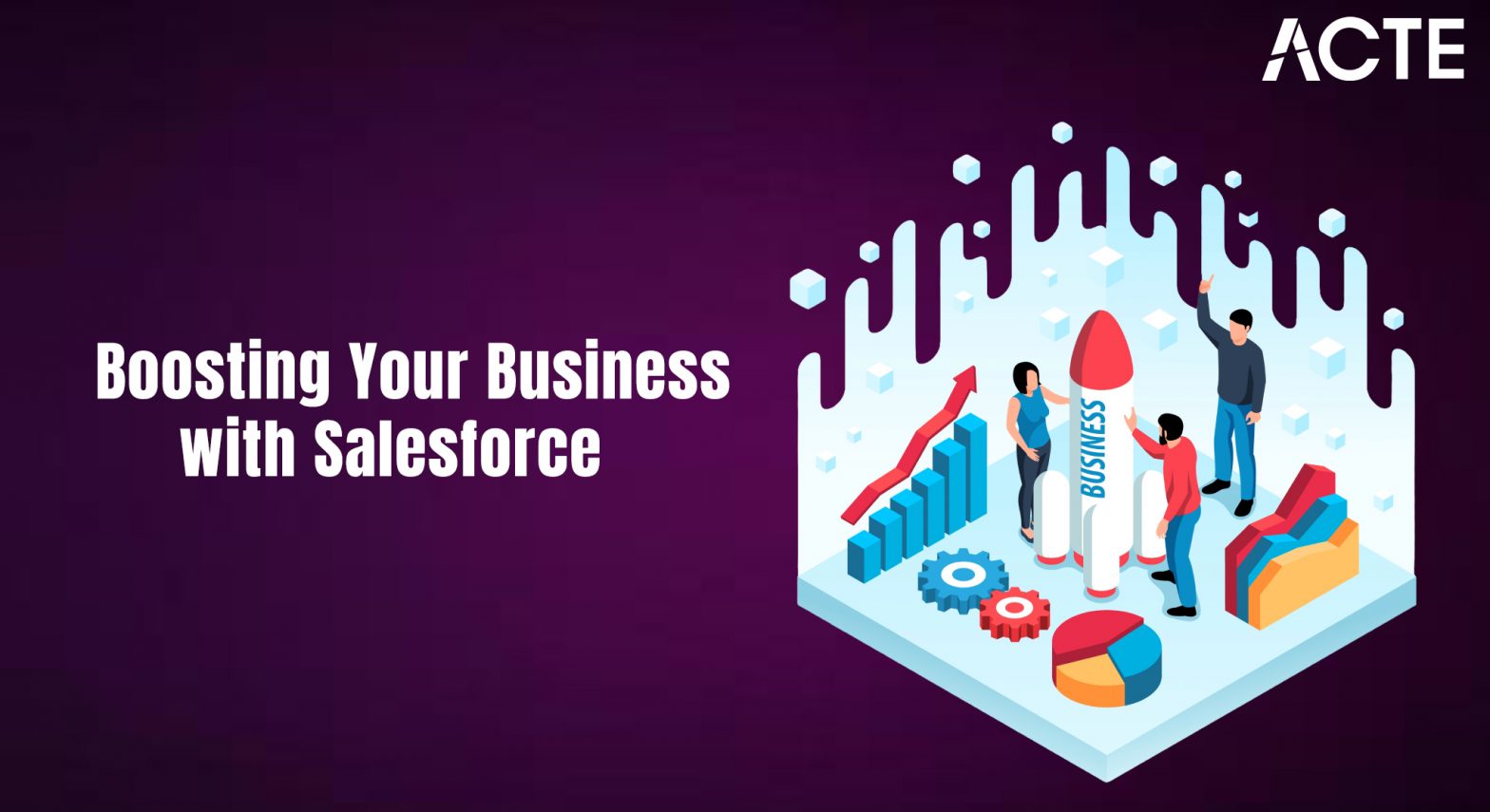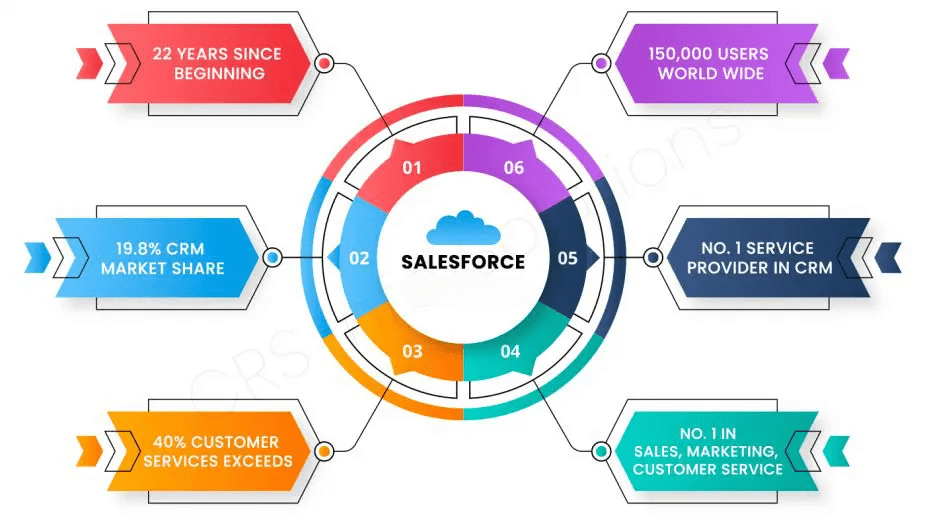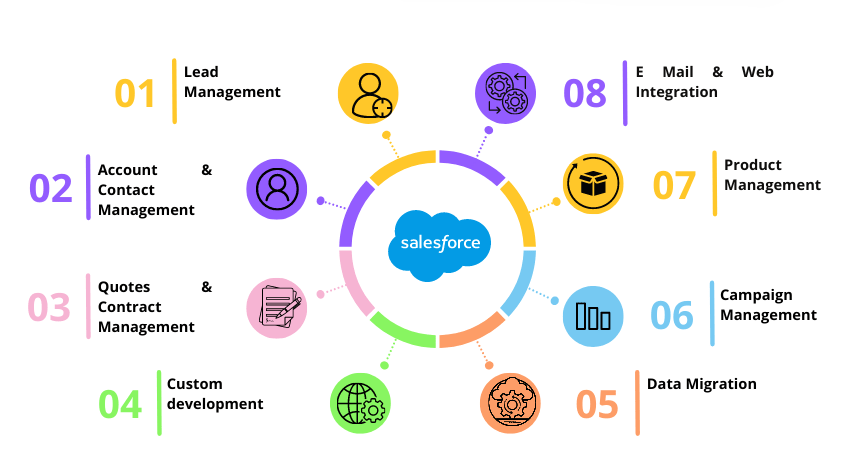
- Understanding the Basics of Salesforce
- Why Salesforce is Essential for Your Business
- Setting Up Your Salesforce Account
- Customizing Salesforce for Your Business Needs
- Leveraging Salesforce Automation for Efficiency
- Boosting Sales with Salesforce Sales Cloud
- Enhancing Customer Support with Salesforce Service Cloud
- Analyzing Data and Insights with Salesforce Analytics
- Conclusion
Understanding the Basics of Salesforce
Before effectively utilizing Salesforce, one must comprehend its fundamental functionality. Salesforce is a cloud-based Customer Relationship Management (CRM) system that allows businesses to manage customer relationships, sales, and service operations. Fundamentally, Salesforce assists companies in monitoring customer interactions, automating processes, and improving efficiency. Salesforce provides modules called “clouds,” which concentrate on functions like marketing, sales, customer service, and analytics. These clouds allow organizations to customize the platform to suit their requirements and offer solutions for lead management, sales forecasting, customer support, and other business applications. If you’re looking to dive deeper into its functionalities, consider enrolling in Salesforce Training. Salesforce’s ease of use, scalability, and flexibility make it a highly desirable option for organizations of all shapes and sizes. Whether a small business or a big company, Salesforce enables you to streamline business processes, improve customer relationships, and ultimately fuel growth, making it an essential tool in the current competitive business landscape.
Why Salesforce is Essential for Your Business
Salesforce is a versatile platform that offers several key advantages to businesses:
a. Centralized Customer DataSalesforce creates a centralized database for all your customer information, making it easier for teams to access and collaborate. Having all your customer data in one place improves communication, reduces errors, and helps ensure a more personalized experience for your clients.
b. Streamlined ProcessesSalesforce automates many manual tasks, such as lead assignment, data entry, and follow-up reminders, saving your team valuable time and resources. With built-in automation, employees can focus on higher-value tasks that require human input.
c. Enhanced Customer RelationshipsSalesforce offers tools to help you track every interaction with your customers, from sales to support. This enables you to provide excellent service. The platform also lets you personalize communication and create more meaningful customer engagements through Omni-Channel Salesforce.
d. Scalability and FlexibilitySalesforce scales with your business. As your company grows, you can add more users, integrate with other platforms, and expand functionality through custom development and third-party apps.
Become a Salesforce expert by enrolling in this Salesforce Training Online Course today.
Setting Up Your Salesforce Account
Setting up Salesforce for your business is a straightforward process that involves a few key steps. First, you need to choose the right edition based on your business size and goals. Salesforce offers several editions, such as Essentials (ideal for small businesses), Professional (for growing businesses), Enterprise (for larger organizations), and Developer (for custom development needs). Depending on whether your focus is sales, customer service, or marketing, you can opt for the appropriate cloud offering like Sales Cloud, Service Cloud, or Marketing Cloud. After selecting the edition, the next step is to sign up and set up your organization. This involves creating a Salesforce account and entering essential business details such as your industry, company size, and the specific processes you aim to support. Once the initial setup is complete, you can move on to user setup. Here, you’ll add users to the system and assign them appropriate roles and permissions based on their responsibilities. To get hands-on experience and enhance your skills, consider exploring Salesforce Projects which can provide practical applications of the platform. This ensures that every team member has access to the tools and data relevant to their job.
Thinking About Earning a Master’s Degree in Salesforce? Enroll For Salesforce Masters Program by Microsoft Today!
Customizing Salesforce for Your Business Needs
Salesforce’s customization capabilities are one of its most powerful features. Here are a few ways you can tailor Salesforce to meet your business’s needs:
a. Custom Fields and ObjectsSalesforce allows you to create custom fields and objects. For example, if you track specific data not included in standard Salesforce features, you can add custom fields to your records to store this information.
b. Custom Pages and LayoutsSalesforce provides page layouts that can be customized for different user profiles. You can configure these layouts to show the most relevant information, simplifying data entry and increasing efficiency.
Are you getting ready for your Salesforce interview? Check out our blog on Salesforce Interview Questions and Answers!
c. AppExchange AppsThe Salesforce AppExchange is a marketplace for pre-built apps that integrate with Salesforce. You can find applications for accounting, marketing automation, customer support, and more. These apps allow you to extend the functionality of your Salesforce instance.
d. Automating WorkflowsWith Salesforce’s Flow Builder and Process Builder, you can automate business processes such as lead routing, approval workflows, and customer notifications.

Leveraging Salesforce Automation for Efficiency
One of the key advantages of Salesforce is its robust automation capabilities, which help reduce manual effort and boost team productivity. There are several tools within Salesforce that enable effective automation. Workflow Rules allow you to automate simple tasks like sending email alerts, updating fields, or creating tasks when specific conditions are met. For more complex scenarios, Process Builder offers the ability to design multi-step workflows that trigger various actions based on defined conditions. Salesforce Training can help you master these tools and optimize your automation processes. Flow takes automation a step further by enabling you to build guided processes, automate record creation, and make real-time decisions based on user input. Additionally, Salesforce’s Marketing Cloud supports automation in customer communication and marketing efforts. With features like email templates, campaign scheduling, and engagement tracking, you can streamline and personalize your outreach efficiently.
Boosting Sales with Salesforce Sales Cloud
The Sales Cloud is one of the most popular Salesforce offerings, designed to help businesses increase sales. Here’s how you can use it to boost sales:
a. Lead ManagementSales Cloud helps you track leads from initial contact to conversion. With automated lead assignment and scoring, sales reps can focus on high-priority leads and reduce manual data entry.
b. Opportunity ManagementSales Cloud provides tools for tracking progress in deals and opportunities. You can set reminders, create tasks, and monitor pipeline health, ensuring that no deal slips through the cracks.
c. Sales ForecastingSalesforce includes built-in tools for sales forecasting, allowing you to predict future revenue based on historical data and current pipeline activity.
d. Collaboration ToolsSales Cloud also integrates Chatter, Salesforce’s collaboration tool, so your sales team can easily communicate and share information.

Enhancing Customer Support with Salesforce Service Cloud
The Service Cloud is a vital component of Salesforce, specifically designed to enhance customer service operations. It offers a range of tools to streamline support and improve customer satisfaction. One of its core features is case management, which allows you to track customer service cases and assign them to the appropriate agents, and monitor resolution times to ensure every issue is addressed promptly. Additionally, the Service Cloud enables you to build a comprehensive knowledge base containing frequently asked questions, troubleshooting steps, and solutions, empowering customers to find answers on their own. It also supports omnichannel communication, allowing your team to assist through live chat, social media, phone, and other channels all from a single platform. Furthermore, you can collect customer feedback and send satisfaction surveys to better understand client needs and continuously enhance your service delivery. To manage and configure these features effectively, having a Salesforce Administrator Role is essential for ensuring smooth operation and system optimization.
Analyzing Data and Insights with Salesforce Analytics
Salesforce Analytics provides businesses with powerful tools to analyze data and derive actionable insights that drive better decision-making. By leveraging advanced features like Salesforce Reports, Dashboards, and Einstein Analytics, organizations can gain real-time visibility into their operations, sales performance, customer behaviors, and more. With its ability to integrate data from various sources, Salesforce enables a comprehensive view of key metrics across departments, fostering a collaborative environment for strategic planning. The platform uses AI-driven insights, allowing users to not only visualize trends but also predict future outcomes, optimize processes, and enhance customer engagement. With customizable reports, teams can drill down into specific data points to uncover hidden patterns, track performance, and identify growth opportunities. The user-friendly interface and seamless integration with other Salesforce products make it easy for both technical and non-technical users to analyze data effectively. By transforming raw data into meaningful insights, Salesforce Analytics empowers organizations to make informed, data-driven decisions that lead to greater efficiency, improved customer satisfaction, and increased profitability. Whether you’re looking to improve sales, optimize marketing efforts, or enhance customer service, Salesforce Analytics equips teams with the tools necessary to stay ahead in today’s competitive business environment.
Conclusion
Salesforce is a transformative platform that helps businesses streamline operations, increase productivity, and improve customer relationships. Integrating Salesforce into your business processes allows you to automate routine tasks, track leads and opportunities, and enhance customer service with real-time insights. This platform also offers powerful data analytics tools, enabling more intelligent decision-making based on actionable information. Whether you’re new to Salesforce or looking to optimize its usage, implementing the right strategies can significantly improve your workflows. To enhance your skills and make the most of Salesforce, consider enrolling in Salesforce Training. From sales automation to customer support, Salesforce covers many business functions to enhance efficiency. With a solid plan and proper setup, Salesforce becomes an indispensable tool in driving business growth, ensuring your teams collaborate more effectively and deliver exceptional results. Whether you’re a small business or a large enterprise, Salesforce’s flexibility and scalability provide the support you need to succeed in today’s competitive market.




